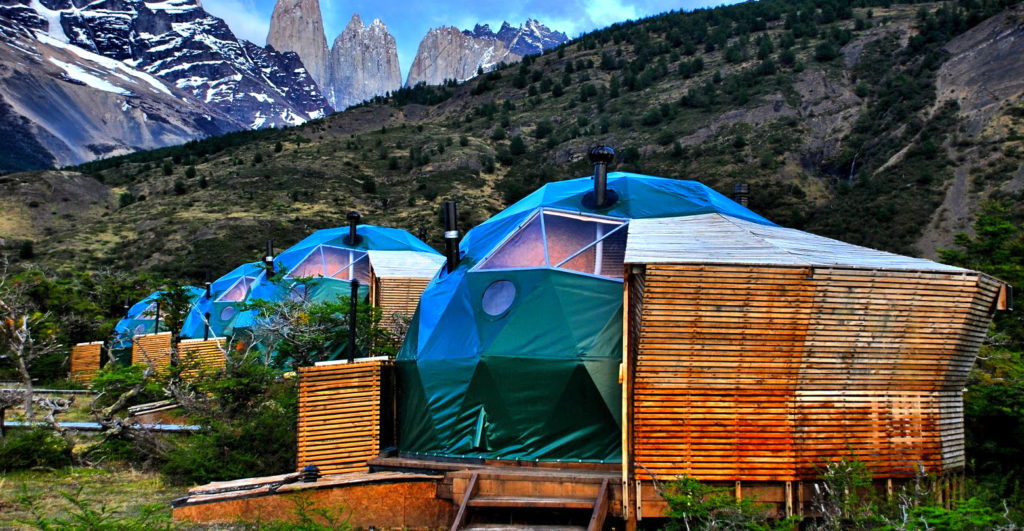Sustainable safaris are eco-conscious travel experiences prioritising environmental conservation, community engagement, and wildlife protection. These safaris aim to minimise negative impacts on ecosystems and local cultures while promoting responsible tourism practices. With more and more travellers opting for sustainable tourism, you will find many destinations worldwide that focus on reducing carbon footprints, conserving natural habitats, and supporting local communities through fair wages and community development projects.
If you’re looking for ideas on where to go, here are the best destinations for sustainable safaris.
Rwanda
Rwanda is an ideal destination for sustainable safari adventures due to its commitment to conservation, diverse ecosystems, and unique wildlife experiences. Renowned for its breathtaking landscapes, including lush rainforests, expansive savannas, and volcanic mountains, Rwanda beckons eco-conscious travellers seeking immersive and responsible safari experiences.
One compelling aspect of sustainable safaris in Rwanda is the opportunity to engage in gorilla trekking in Volcanoes National Park, home to endangered mountain gorillas. Rwanda’s conservation efforts, including community involvement and strict protection measures, ensure the preservation of this iconic species and its habitat while providing visitors with unforgettable wildlife encounters.
Exploring Akagera National Park offers a chance to witness the “Big Five” and other wildlife thriving in their natural habitats. Sustainable tourism practices, such as low-impact safari activities and revenue sharing with local communities, contribute to the park’s conservation efforts while supporting socio-economic development in surrounding areas.
Furthermore, Rwanda’s commitment to sustainability extends to eco-lodges and accommodations that prioritise environmental conservation and community engagement. Visitors can enjoy eco-friendly lodging options that minimise environmental impact while providing authentic and comfortable safari experiences.
From engaging in guided nature walks and birdwatching excursions to cultural encounters with local communities, Rwanda offers plenty of options for visitors seeking sustainable tourism practices.
The Galapagos Islands
With their unparalleled biodiversity, fragile ecosystems, and rigorous conservation efforts, the Galapagos Islands are some of the world’s best destinations for sustainable tourism. As a UNESCO World Heritage Site and a marine reserve, the Galapagos Islands prioritise environmental protection while offering visitors transformative and responsible travel experiences.
One key aspect of sustainable tourism in the Galapagos is the strict regulation of visitor numbers and activities to minimise ecological impact. Guided tours led by certified naturalist guides ensure visitors adhere to preservation guidelines while fostering understanding and appreciation for the islands’ unique flora and fauna.
Furthermore, the Galapagos has eco-friendly accommodations and tours committed to energy efficiency, waste reduction, and sustainable practices to minimise the carbon footprint of visitors and operators. Staying in eco-lodges or eco-friendly hotels that employ renewable energy sources and promote environmental stewardship enhances the sustainability of the travel experience.
Engaging in activities such as snorkelling, kayaking, hiking, and wildlife viewing allows visitors to immerse themselves in the natural wonders of the Galapagos while respecting the delicate balance of marine and terrestrial ecosystems. Supporting local conservation initiatives and responsible tour operators also ensures that tourism dollars contribute to the islands’ long-term preservation of biodiversity.
Uganda
Uganda is an ideal destination for sustainable safari tourism due to its remarkable biodiversity, commitment to conservation, and community-based tourism initiatives. Known as the “Pearl of Africa,” it boasts diverse ecosystems, including lush rainforests, sprawling savannas, and pristine lakes, offering immersive and responsible safari experiences.
One aspect that makes Uganda an ideal sustainable safari destination is the opportunity to encounter endangered mountain gorillas in their natural habitat. Gorilla trekking in Bwindi Impenetrable National Park and Mgahinga Gorilla National Park supports conservation efforts while providing visitors with transformative and ethical wildlife encounters.
Furthermore, exploring Uganda’s national parks, such as Queen Elizabeth National Park and Murchison Falls National Park, allows travellers to witness the “Big Five” and other iconic species thriving in their natural habitats. Sustainable tourism practices, including low-impact safari activities and supporting local communities, contribute to wildlife protection while fostering community development.
Engaging in guided nature walks, birdwatching excursions, and cultural immersions with local communities also promotes sustainable tourism by raising awareness about conservation and supporting livelihoods.
Moreover, staying in eco-friendly accommodations and booking responsible tour operators can help in environmental conservation and minimising ecological impact through energy-efficient practices and waste management initiatives.
Tanzania
Tanzania has all the qualities of a sustainable safari destination due to its extraordinary biodiversity, conservation efforts, and diverse landscapes. Home to iconic national parks such as Serengeti, Ngorongoro Crater, and Tarangire, Tanzania offers immersive safari experiences while prioritising environmental preservation and community involvement.
In Tanzania, you can witness the Great Migration in the Serengeti. It’s a spectacular phenomenon where millions of wildebeest and other animals traverse the plains in search of greener pastures. Sustainable safari operators ensure that wildlife viewing activities adhere to strict guidelines to minimise disturbance and protect fragile ecosystems.
Furthermore, engaging in community-based tourism initiatives allows travellers to interact with local communities, support traditional livelihoods, and contribute to socio-economic development in rural areas. Visiting Maasai villages or participating in cultural exchanges provides insights into indigenous cultures and fosters mutual understanding and respect.
Participating in guided nature walks, birdwatching excursions, and conservation projects also offers opportunities to deepen your connection with nature and contribute to protecting Tanzania’s rich biodiversity.
Madagascar
Madagascar may not always come up on the list of safari destinations, but its unparalleled biodiversity, unique ecosystems, and conservation efforts make it an ideal place for sustainable tourism. As one of the world’s biodiversity hotspots, Madagascar boasts an array of endemic species found nowhere else on Earth, making it a captivating destination for eco-conscious travellers seeking immersive and responsible safari experiences.
In Madagascar, you can explore its diverse national parks and reserves, such as Andasibe-Mantadia National Park, Ranomafana National Park, and Isalo National Park. These protected areas are home to rare lemurs, colourful chameleons, and diverse flora, providing unforgettable encounters while supporting conservation efforts.
Moreover, Madagascar has eco-friendly accommodations committed to environmental sustainability through energy-efficient practices, waste reduction, and wildlife conservation efforts. Staying in eco-lodges that blend harmoniously with the natural surroundings enhances the authenticity of the safari experience.
Madagascar’s extraordinary natural beauty, endemic biodiversity, and commitment to sustainable safari tourism make it a premier destination for eco-conscious travellers seeking meaningful and responsible adventures in one of the world’s most captivating landscapes.




